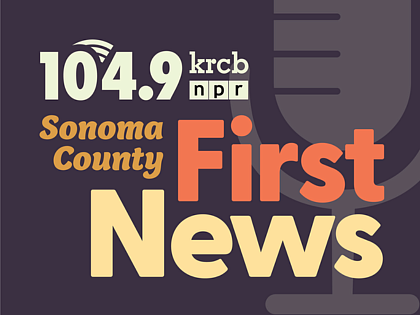
Arts on the rise
School attendance will soar, and students will master the math of music in triads and quarter tones in districts like Manteca Unified in San Joaquin County, which will get about $3.8 million in new funding from Proposition 28. That's the $1 billion ballot initiative, Arts and Music in Schools -- Funding Guarantee and Accountability Act, that voters passed in 2022. Manteca, known for its quality bands and providing instruments to all who need them, will be better positioned than many districts. Most others will struggle to fill arts, dance and music jobs, at least initially.
A note of caution: Under the terms of the new law, districts must use Proposition 28 to expand, not replace, existing arts funding. Eagle-eyed arts protectors will be watching how administrators move the Proposition 28 pea in the budget shells.
Now, brace yourselves for the dark side of the moon.
The state budget
Within days, Gov. Gavin Newsom will release his first pass at the 2024-25 budget, but Legislative Analyst Gabriel Petek offered his gloomy forecast last month: a three-year projected state general fund deficit of $68 billion; between $16 billion and $18 billion would be in Proposition 98, the formula determining how much funding goes to TK-12 and community colleges.
Draining the state's rainy-day fund for education and picking away at budgeted but unspent funding, perhaps for buying electric school buses and creating hundreds more community schools, could halve the problem. School lobbies will demand that legislators hold districts and community schools harmless and cut elsewhere in the state budget -- to which UC President Michael Drake will reply, "You lookin' at me?"
A likely compromise: Pay what the Legislature appropriated for 2023-24 but dust off a Great Recession strategy. Do what your boss does when he can't make payroll but doesn't want to lay you off: issue you IOUs. In edu-speak, they're "deferrals" -- and would involve pushing back state payments to districts scheduled for May and June 2024 into July, August or later in the next fiscal year. It's not a painless tactic: Districts without cash on hand will have to borrow. And the money will have to be paid back, potentially eating into future levels of Proposition 98 funding.
It gets worse
School districts have known the reckoning was coming. Called "the fiscal cliff," it combines the expiration of billions in federal Covid relief, declining enrollment in nearly three-quarters of districts, and a leveling off from record state funding. What they hadn't anticipated is a projected 1% cost of living increase, based on a federal formula that this year will disadvantage California; this compares with 8% in 2022-23 and 13% the year before that.
For districts like San Francisco Unified that negotiated sizable raises and over-hired with one-time funding, budget pressures will be intense to close underenrolled schools -- never a popular decision -- and lay off staff. Dozens of districts will suddenly find themselves on the state's financial watch list.
State facilities bond
The state has run out of money to subsidize the costs of new school construction and renovations; billions of dollars' worth of districts' projects are in the pipeline. Covid, last year's floods and sweltering temperatures -- signals of climate change -- exposed the need for retrofits to meet 21st-century conditions. But the first-ever defeat of the last state bond proposal, in March 2020, proved school advocates shouldn't take voters for granted. Was the $15 billion price tag too big? Should funding for CSU and UC be included? There will be lots of polling to answer those questions.
Toil and trouble
The odds are five fensters that the fight over library books and the backlash against transgender protections in reddish districts will embroil voters statewide in 2024. Suppose school choice and religious conservatives succeed in passing the initiatives they're aiming to place on the ballot. In that case, progressive California voters will awake with a fright on Nov. 6, wondering if they're living in Kansas.
Proposed for November vote
Private school choice: Pushed by the coalition Californians for School Choice, the initiative would create voucher-like education savings accounts equal to the average Proposition 98 per student funding, initially $14,000, that families could use to send their kids to private schools, including religious schools currently prohibited by the state constitution from receiving public money. Home-schools with 10 or more students could form a private school for funding, too. State oversight would be minimal. Subsidies for families already paying for private schools would cost the state $6.3 billion to $10 billion per year by diverting money from Proposition 98, the Legislative Analyst estimates.
In 2002, voters rejected a voucher initiative 70% to 30%. Capitalizing on unhappiness with schooling during Covid-19, this initiative will do better, but defenders of public schools, starting with the CTA, will hugely outspend the proponents.
Because the initiative would amend the state constitution, organizers would need to collect 874,641 signatures.
School Transparency and Partnership Act aka Outing Trans Kids Act. Unable to get traction in the Legislature, the parent activist group Protect Kids California, co-founded by Roseville City Elementary School District board member Jonathan Zachreson, is canvassing for the 546,651 signatures required for the initiative. It would require schools to notify parents within three days if a stud
ent asks to be treated as a gender other than listed in official school records. This would include requesting a name change, a different gender pronoun, participation in an activity using a different gender, or changing clothes identifying as a different gender.
Protect Girls' Sports and Spaces Act, also collecting 546,651 signatures, is the second of three related initiatives proposed by Protect Kids California. It would repeal the 2013 state law allowing students to participate in school activities and use school facilities consistent with their gender identity. Female students in grades seven and higher in public schools and colleges would be banned from participating in female sports or using bathrooms and locker rooms assigned to females based on their birth gender.
Protect Children from Reproductive Harm Act, aka Parental Control Unless We Say So Act. California, which has been a sanctuary for families seeking medical care for transgender youths, will join the nearly two dozen states that ban transgender care if this initiative, the third transgender-restriction initiative pushed by Protect Kids California, passes. It would ban health care providers from giving medical care to patients under 18 seeking to change their gender identity. It would prohibit that treatment even if parents consent or doctors recommend it for the minor's mental or physical well-being.
Eyes of the storm
Recall elections of school board members in two districts will serve as a gauge of whether activist conservative majorities represent a fringe minority or the will of the majority.
Longtime Orange Unified board President Rick Ledesma and newly elected board member Madison Miner angered opponents by voting with two other conservatives to fire a respected superintendent on Jan. 5 during winter break without citing a cause. They stirred the ire of Gov. Gavin Newsom by rejecting a sixth-grade textbook that included a passage about gay activist Harvey Milk, whom Ledesma characterized as a pedophile. In October, the board became the sixth in the state to adopt a transgender notification policy.
A three-member majority in Temecula Valley Unified adopted a similar playbook this year, including firing its superintendent. A political action committee of voters appears to have turned in more than enough signatures to recall board President Joseph Komrosky, their primary target, but not enough to oust Jennifer Wiersma. The third conservative, Danny Gonzalez, resigned in December to move out of state. In his last board meeting, he lashed out at opponents, including board member Stephen Schwartz, whom he accused of showing "vile contempt for Christians." Schwartz is Jewish.
The outcome of the recall would be a measure of the power of the Evangelical 412 Church Temecula Valley and its pastor, Tim Thompson, who has been outspoken in defense of the board majority.
Etc.
California Personal Finance Education Act, aka "Why You Should Tear Up That 20th Credit Card Offer Act." Pushed by Palo Alto entrepreneur Tim Ranzetta, who's been proselytizing for teaching students personal finance through a nonprofit he co-founded, the initiative would require a semester of personal finance as a graduation requirement, starting with the graduating class of 2030. California would join about two dozen states with or phasing in the requirement.
Early literacy
In late December, a new alliance of advocates calling for the state to take a clearer and more resolute policy on early literacy published an early literacy policy brief with the expectation that it would lead to legislation in 2024. The California Early Literacy Coalition includes Decoding Dyslexia CA, 21st Century Alliance, Families in Schools, California Reading Coalition and the rejuvenated nonprofit EdVoice.
Among its positions, the coalition calls for:
-Directing the California Department of Education to create a list of approved professional development courses grounded in the science of reading that districts and educators can select.
-Requiring all teachers and reading coaches in elementary schools to complete training from the approved course list.
-Providing help to schools and districts as they adopt the science of reading-aligned instructional materials.
The state, under Newsom, supports the science of reading approach to reading and, in piecemeal fashion, is partially funding some of what the coalition advocates. The difference is that a comprehensive policy would mandate what the administration has only encouraged.
Passage likely will take more than a year of effort and perhaps await the election of a new governor and state superintendent of public instruction willing to challenge the reflexive defense of local control on this issue.
Extra challenges for charter schools
Along with challenges facing all school districts, the state's 1,300 charter schools will face added pressures. Many are in the Bay Area and Los Angeles, where enrollment declines for districts and charter schools are largest. Tensions between them could escalate if funding-desperate districts deny charters fair access to school facilities, as the school board majority of Los Angeles Unified voted to do last year.
A pre-pandemic reform law allowing school districts to factor in financial impact when deciding to grant a new charter school will thwart growth and expansion, and the 2024-25 resumption of the charter renewal process, using problematic post-pandemic performance measures, could compound charters' troubles. The result: Some financially fragile charters will close; the weakest performers will be shut down.
One area in which legislators, charters and districts should agree is new accountability requirements for non-classroom-based charter schools that offer virtual schools or hybrid models combining home-schooling and classrooms. They've become more popular with families and been more prone to scams. In the two most egregious cases, A3 and Inspire charter networks, self-serving operators double-billed, falsified attendance records, and funneled funding to shell operations, stealing hundreds of millions of dollars.
San Diego County prosecutors, who convicted A3's executives in 2019, have expressed frustration that it has taken so long to enact remedies. Three separate task forces will present findings by June.
Worth every penny?
EdSource reporter Diana Lambert calculated that pay for superintendents in some of the state's districts had increased by 60% in the past decade; it's a tough job, and these days, not too many appear to want it.
Including benefits, Christopher Hoffman of Elk Grove and Alberto Carvalho of Los Angeles Unified, respectively the state's fifth-largest and the largest districts, earn over $500,000 per year. That's hardly chump change, but then again, Dodger pitcher and hitter extraordinaire Shohei Ohtani signed a 10-year contract for $700 million, an average of $70 million per year.
Carvalho could argue he's certainly worth at least 1% as much: $700,000. After all, he oversees a $20 billion budget. But with declining enrollment and layoffs likely, this is not the year to swing for the fences.
The anti-anti-tax initiatives
The Business Roundtable and Howard Jarvis Taxpayers Association, carrying the torch of Proposition 13, have placed an initiative on the November ballot to make it harder to pass state tax increases. It would redefine a number of state-imposed fees as taxes, therefore requiring a two-thirds majority of the Legislature to pass and require all future taxes or increases approved by the Legislature to go before the general electorate for approval. It also would nullify a recent state court ruling that school parcel taxes initiated by citizens, not by school boards, need only a majority of voters to pass -- instead of the standard two-thirds.
In a shrewd counter-move to head it off, legislators, mostly Democrats, voted to place a competing constitutional amendment on the November ballot. It says that any initiative that raises the voter threshold for passing taxes would need the support of two-thirds of voters, not just a simple majority, to be enacted. It's explicitly aimed at making it less likely the Business Roundtable initiative will pass.

 Live Radio
Live Radio




